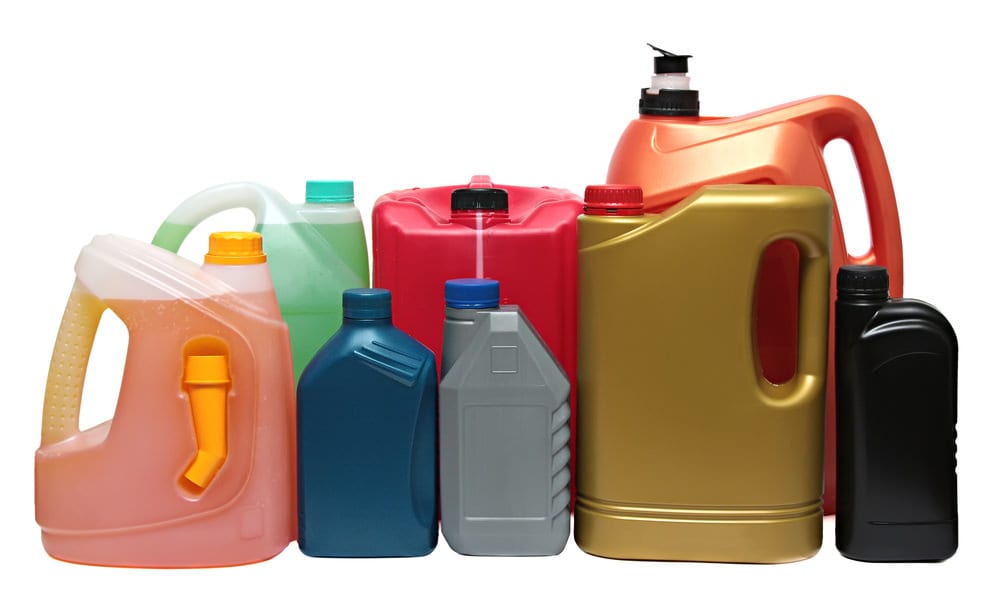

Changing oil on time will help protect your engine, and many drivers ask if using synthetic oil in their new car is the right choice. The short answer to this question is yes. As long as the oil meets the manufacturer’s refill standards you can use it, and many new cars actually require synthetic oil.
In your engine, as long as the synthetic meets SAE (Society of Automotive Engineers) standards for the manufacturer's recommendation in your owner's manual, it can be used in the crankcase. The same is true of synthetic blend oil.
You can also use a conventional oil, as well. As long as it meets the same SAE designation, you can use it in the crankcase. Conventional oil is classified as an all-organic lubricant whose chemical makeup has not been changed by added processing. In this case, the added processing would be the method used to either create the synthetic or to mix the conventional oil with synthetic, creating the blend.
Two types of synthetic oil
There are two types of synthetic oil, full synthetic and blended synthetic. Full synthetic oil is “manufactured.” Take Castrol EDGE, for example. Castrol EDGE is a full synthetic. Its base is petroleum, but the petroleum is subject to a chemical process that takes the random molecules and makes them uniform. That rather complicated process is the feature that determines whether an oil is synthetic. Oils like Castrol EDGE are extensively manipulated to create the uniform molecular structure for which they are noted.
Synthetic blends or Synblends are oils that are a mix of synthetic oil and high-quality conventional oil. They exhibit the benefits and characteristics of both synthetic and conventional oils.
Synthetics are tough motor oils
Synthetic motor oils are tough as nails. They have a uniform chemical structure, so they offer much more uniform wear characteristics than conventional motor oils. The uniform oil structure also allows synthetic oils to lubricate more evenly in today’s high-temperature, often high-compression, engines. Synthetic oils are engineered to perform well over a broad range of temperatures.
Take a requirement for 5W-20 weight oil, for example. The 5 tells you that the oil will perform down to minus-40°C or roughly minus-15°F. The 20 indicates that the oil will perform past 80°C or around 110°F. Synthetic oils perform well in winter and under summer’s added heat load. They retain their viscosity (ability to remain liquid and lubricate) in cold and hot climates. Note that there is a “slip factor” in these ratings. Synthetic oils, in general, will perform well down to about minus-35°F and up to about 120°F. Synthetics have a far broader performance range than more conventional oils.
Premium conventional oils that meet the 5W-20 standard perform well over the minus-15/110 temperature range. There is even some “slip” involved as well. The sticking point is that over extended periods where synthetic oils will perform well without breaking down, conventional oils will start to breakdown.
Synthetic blends mirror their origins
This is where the synblends work well. Synthetic blends combine many of the best parts of synthetic oils with premium conventional oil. Because they are based on premium conventional oil, synthetic blends are more inexpensive than full synthetic oils. Their chemical makeup of synthetic blends mirrors their origins.
If you were to look at the chemical makeup of synthetic blended oil, you would find it to be a mix of standardized and conventional molecule chains. The standard or engineered molecule chains give the synblend its heartiness in heat, cold and lubricating ability, while the conventional molecule chains allow oil companies to keep the costs down somewhat.
To an extent, even premium conventional oils are “manufactured.” Castrol adds detergents, some lubrication enhancements, anti-wax, and stabilizing elements to their premium GTX conventional motor oils to enable them to perform at a high level over their ranges.
Conclusion: synthetics are fine in your new car
They offer better performance characteristics, thus, synthetics are often preferred by car manufacturers. Synthetics are manufactured to perform over a wider range of temperature. They are also made to last longer than synblends or premium conventional motor oils. They are the most expensive oils. Synblends are the middle ground in oils. They provide many of the characteristics of synthetics but at a lower cost. Premium conventional oils are the baseline. They work well but don’t last as long as either synthetics or synblends.
Changing oil every 3,000 to 7,000 miles will help prevent engine wear and expensive replacements. If you need an oil change, YourMechanic can provide one at your home or office using high-quality Castrol synthetic or conventional oil.



